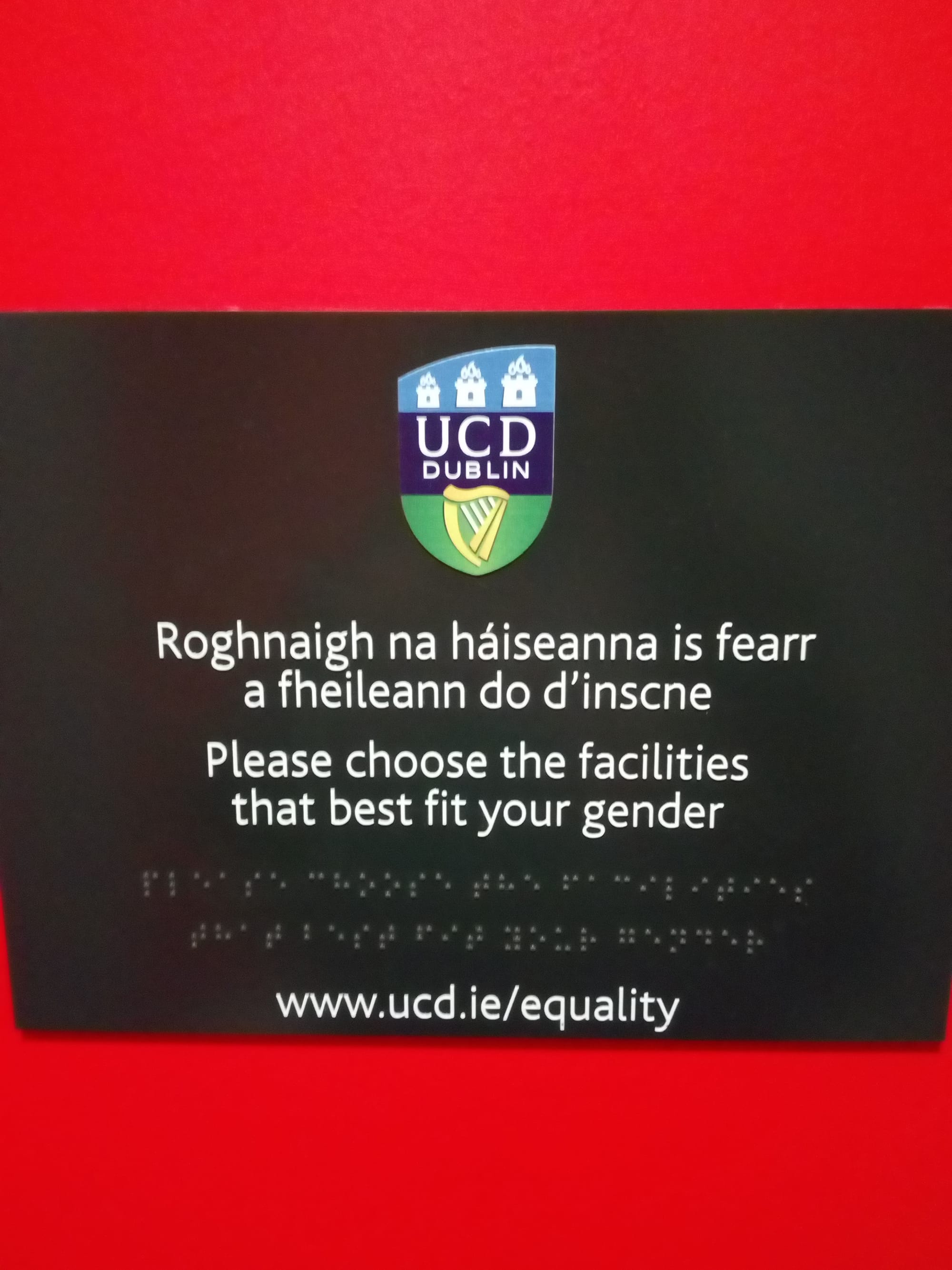What impact assessment was carried out on allowing men to call themselves women?
Why are the demands of a tiny minority to use whichever toilet they like in our national theatre according to their "personal preference" given precedence over the majority's preference for the comfort and dignity of single-sex provision?

The UK government is now insisting on a regulatory impact assessment into the burden the guidance on the Supreme Court's ruling that the 2010 Equality Act refers to sex at birth may place on businesses. Was it considered a burden to permit men to access women's spaces in the first place? And who has paid the price?
Here in Ireland
"Was a Regulatory Impact Assessment or gender impact assessment or gender equality regulatory impact assessment carried out before the Gender Recognition Act 2015 was passed?
If so, was this carried out before or after the Bill was changed from one requiring a medical opinion for any applicant seeking a Gender Recognition Certificate to one which dispensed with this allowing for self-identification with no medical opinion required?"
The Department of Social Protection has replied that
"The Gender Recognition Act 2015 provided for the formal legal recognition of a person's preferred gender. This legislation was the subject of significant consultation and engagement prior to its publication."
Did the "significant consultation" consider that the Gender Recognition Act (GRA) would result in men being sent to women's prisons on foot of having a Gender Recognition Certificate or "identifying" as a woman (four out of five we know of were sex offenders)*; men or boys being allowed to play against or with women and girls in women's sports e.g. LGFA, golf? What "engagement" was there with women over the issue of men being allowed and encouraged to use women's toilets?
We know this is happening in the workplace here, as in the UK, with women being expected to put up with this on foot of legal advice sought by their employer.


And went even further in a sample policy for members by stating:

IBEC, which describes itself as Ireland’s largest lobby and business representative group was asked
"What guidance IBEC does provide to its members on how to meet the privacy and dignity needs of both male and female employees if some employees are encouraged and permitted to use the toilets of the opposite sex in the workplace?"
IBEC has so far failed to respond, but if a response is received it will be included here.

This issue is also affecting women and girls outside the workplace. UCD was asked
"Can you please explain how the privacy and dignity needs of both male and female students who feel more comfortable in a single sex toilet are being met if someone of the opposite sex who believes they have a particular 'gender identity' is encouraged to use whichever toilet they like in UCD?"
UCD has also failed to respond but any response which is received will be added here.
According to the Abbey Theatre earlier this year
"The bathrooms in the Peacock are marked with symbols illustrating facilities that are in the bathroom; which are cubicles in one, and cubicles and urinals in another. All-gender bathrooms allow our visitors, patrons, staff and others to make an informed decision, based on their personal preference. The Abbey understands that some people may feel uncomfortable with our current toilet usage policy, and we wish to remain sensitive to all of our audiences."
The Abbey are clearly not being sensitive to "all" of their audiences. Why are they neglecting the needs and rights of the majority of the paying public who feel uncomfortable and even unsafe if they come across someone of the opposite sex in a toilet? A man is likely to be uncomfortable at a woman breaching his privacy but may also worry about an accusation being made. If a woman finds a man in a women’s toilet she will also not only feel very uncomfortable but may also feel afraid. The theatre was asked
"Can you please explain how the privacy and dignity needs of both men and women who feel more comfortable in a single sex toilet are provided for by the Abbey and the Peacock?"
A spokeswoman responded
"We have nothing further to add to the response that we sent to you in August."
As former Taoiseach Leo Varadkar explained in The Sunday Times recently
"Female and male-only spaces are another dilemma. Lots of men don’t particularly like the fact that women often come into the gents bathroom to avoid a long queue at their own. Many gay men do not like the fact that our clubs are sometimes frequented by groups of women."
The Department of Social Protection wasn't able to demonstrate that any sort of impact assessment was carried out on the likely effects of our Gender Recognition Act. A Freedom of Information request to the same department asking for a copy of all communications, reports and documents relating to the need for and the carrying out of a Regulatory Impact Assessment, gender impact assessment or gender equality regulatory impact assessment and a copy of any type of impact assessment was refused earlier this year on the basis that

The Gender Recognition Act was switched to "self-id" six weeks before it was passed so there was no time for any public consultation on this. Women were not asked for our views and we never consented to the idea of men being allowed to "self-id" as women.
It's hard to believe that such a momentous piece of legislation as the reality defying Gender Recognition Act was passed without our legislators giving serious consideration to the consequences for women and children.
But that's exactly what an 84% male Dáil did.

*https://www.independent.ie/irish-news/transgender-inmates-are-housed-in-womens-wing-of-prison/40430731.html; https://www.sundayworld.com/crime/irish-crime/transgender-child-perv-back-on-streets-despite-being-told-she-would-be-deported/1777263222.html;https://www.sundayworld.com/crime/courts/trans-woman-jailed-for-three-years-over-sex-attack-on-teen-in-dublin-laneway/a1795907692.html

